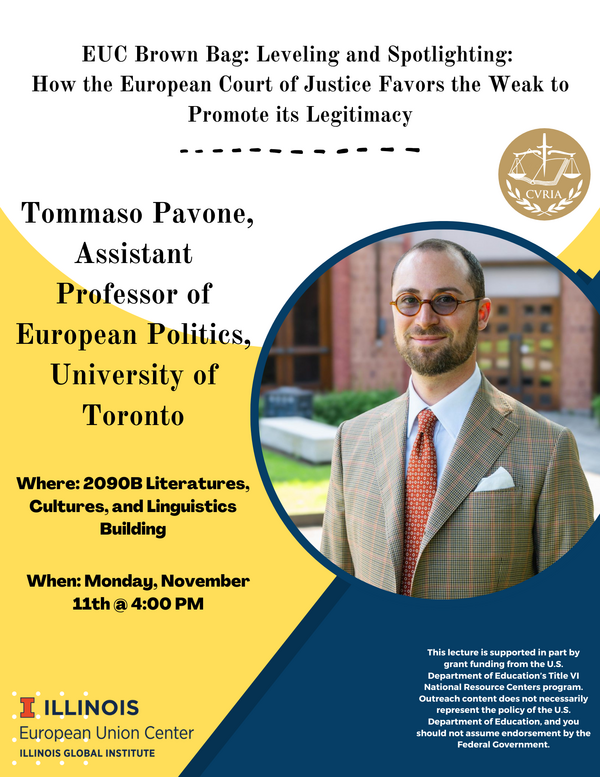
EUC Brown Bag: Leveling and Spotlighting: How the European Court of Justice Favors the Weak to Promote its Legitimacy
- Event Type
- Lecture
- Sponsor
- European Union Center; Department of French & Italian
- Location
- 2090B Literatures, Cultures, and Linguistics Building
- Date
- Nov 11, 2024 4:00 pm
- eucenter@illinois.edu
- Views
- 205
- Originating Calendar
- European Union Center Events
The European Court of Justice (ECJ) is arguably the world's most active international court. The vast majority of the ECJ's caseload is generated by private litigation: when private parties turn to the Court, do the corporate "haves" tend to come out ahead? Although the ECJ is often cast as a pro-business court, I argue that ECJ judges intentionally tip the scales in favor of the "have nots." By leveling the odds for less resourceful individual litigants and spotlighting their rights claims, the ECJ seeks to cultivate its legitimacy with support networks in civil society by promoting itself as protector of the weak. Triangulating between the public advocacy of ECJ judges and an original dataset, I demonstrate that the ECJ “levels,” favoring individuals’ rights claims compared to claims by businesses despite the latter boasting larger, more experienced legal teams. The ECJ also “spotlights” support for individuals through press releases that networks of national lawyers then amplify in law journals. These findings challenge the view that the ECJ builds its legitimacy by stealth and that the "haves" come out ahead in EU law litigation.
About the speaker: Tommaso Pavone is an Assistant Professor of Political Science at University of Toronto and the Director of the Centre for the Study of France and the Francophone World.
This lecture is supported in part by grant funding from the U.S. Department of Education’s Title VI National Resource Centers program. Outreach content does not necessarily represent the policy of the U.S. Department of Education, and you should not assume endorsement by the Federal Government.